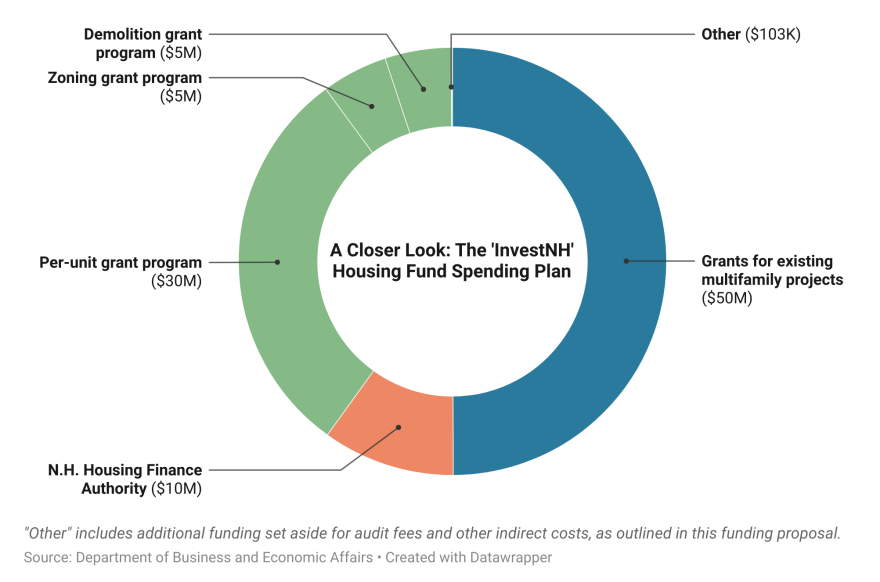The way Gov. Chris Sununu sees it, New Hampshire’s housing crisis — historically low vacancy rates, skyrocketing rents and a market that’s increasingly unattainable to low- to moderate-income residents — is driven primarily by a lack of supply.
To that end, Sununu hopes to use $100 million in federal funding to encourage developers and municipalities to build more housing. He hasn’t committed to building a specific number of new housing units through the program, nor has he committed to ensuring a specific share of those units are affordable, but said he hopes to distribute the money across the state as quickly as possible and would like it to be used up within the next year to 18 months.
Asked if any additional regulations are needed to stabilize the rental market, for example, to protect tenants from out-of-state landlords who are buying up apartments and imposing significant rent hikes, Sununu was adamant that adding more housing was the solution.
“The more you can flood housing into the system, it’s all going to get used,” he said at a Wednesday press conference touting these plans. “A lot of those out-of-state landlords are charging excessive rent, for lack of a better term, because they can. So let's create competition, and you create competition by increasing supply.”
Some local housing advocates have been pushing state officials to do more to make sure this funding goes toward affordable housing, not just housing at any price point.
Advocates from New Hampshire’s disability communities have called on the state to further enable people with disabilities to live independently, citing a lack of accessible and affordable options.
Asked about those concerns Wednesday, Sununu said incentivizing new construction will help. But at this point, the state has not offered specific details on how these new funds might prioritize accessible housing for people with disabilities or other populations.
“It gets very, very costly when you need to make things accessible for the disabled,” Sununu said of retrofitting New Hampshire’s older housing stock. (By law, property owners are required to allow “reasonable accommodations” for tenants with disabilities, though in some cases tenants might have to pay for those renovations.)
“Having new construction and new opportunities and new ways of doing it that meet those needs directly, it's much more efficient, much more cost-effective, and just creates a much better product at the end of the day,” he said.
As proposed, half of the money in Sununu’s new housing plan would fund grants for multifamily housing projects with at least four units that are “either in or near starting construction.” Individual developers would be able to apply for up to $3 million per project, out of a pool of $50 million, to cover construction or other “hard costs.”
While details on the plan and eligibility criteria are still sparse, state officials say they will prioritize projects “that address the shortage of affordable housing” for New Hampshire’s workforce. Sununu spokesman Ben Vihstadt said other factors, like the size of each property and “the ability to meet an 18-month schedule,” will also be taken into account.
Department of Business and Economic Affairs Commissioner Taylor Caswell said at the press conference that the state has not yet finalized how it will determine which housing projects are “affordable.”
Another $40 million in Sununu’s housing plan would be spread across three grant programs for municipalities, one of which would reward cities and towns that work quickly to greenlight new multifamily rental housing.
Municipalities could receive $10,000 per unit for new developments that are permitted within six months. The other grant programs would offer money to municipalities to update their zoning rules and “to demolish all or part of vacant or dilapidated buildings.”
“It makes way for the new and that increases property values and all that,” Sununu said of the demolition grant program.
The Joint Legislative Fiscal Committee is expected to review the funding proposal at their April 15 meeting. The plan will also need approval from the Executive Council. Sununu and Caswell said all of the details about the program criteria, determination and award recipients will be made public.








